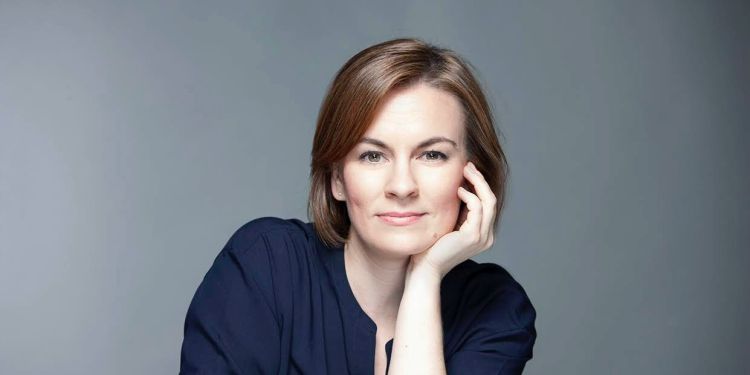
In conversation with conductor Daniela Candillari
On Friday 26 September 2025, acclaimed conductor Daniela Candillari makes her Guildhall debut directing the Guildhall Symphony Orchestra & Chorus in a powerful programme of Tabakova, Mendelssohn and Puccini on the Barbican Hall stage.
Candillari brings her “confidence and apparently inexhaustible verve” (The New York Times) to opera houses and concert stages throughout the world. She is renowned for guiding ground-breaking world premieres to the stage “with a sure hand” (The New York Times) as well as her “incisive leadership” (Wall Street Journal) of classical music’s most frequently performed masterpieces.
Ahead of the performance, we spoke to Daniela about the exciting repertoire in this season-opening concert, her approach to collaboration, and what inspires her work on the podium.
We’re thrilled to welcome you for the first time to work with Guildhall Symphony Orchestra & Chorus! Could you share some insights into the programme for this concert?
Thank you for having me! I’ve been looking forward to this concert and to working with everyone at Guildhall School for quite some time now. It’s a beautiful programme, featuring works by some of my favourite composers. Each piece brings a certain infectious energy, and they’re all distinctly rooted in the stylistic worlds in which they were written. It’s been a real joy to prepare this music together.
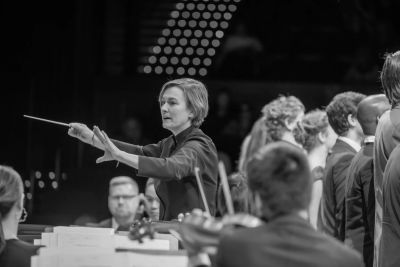
Have you conducted any pieces by Guildhall alumna Dobrinka Tabakova before? What do you particularly admire about her piece Orpheus’ Comet?
This is my first time performing the music of Dobrinka Tabakova, though I’ve admired her work for some time. I’m especially thrilled to be playing Orpheus’ Comet – a piece full of playful energy, rich textures and exuberant momentum. I love how she weaves in references to Monteverdi’s Orfeo fanfare and the signature melody of Euroradio. These familiar motifs are given new life, inviting us to hear them with fresh ears. It’s the perfect piece to open a concert – full of curiosity and vitality, and setting the tone for an exciting musical journey.
Mendelssohn’s Italian Symphony is full of energy and colour. How do you plan to approach this piece, and what excites you most about conducting it?
As I reflect on Mendelssohn’s Italian Symphony, I’m struck by its energy and colour – it reminds me of his ever-curious, inquisitive spirit. In many ways, the symphony feels like a tone poem, rich with contrasting moods and vivid scenes. While the orchestration remains firmly rooted in the classical tradition – with double winds, two horns, two trumpets, and timpani – the harmonic language and phrasing already point toward the future of the symphonic repertoire. The outer movements are brilliantly virtuosic, framing a work that balances lyricism and vitality with remarkable elegance.
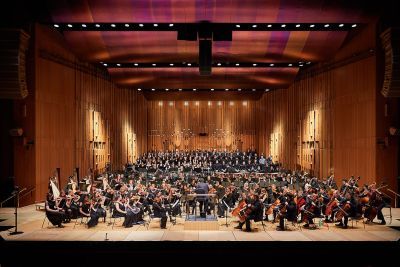
Puccini’s Messa di Gloria requires large forces – more than 200 performers on stage! How does it feel to take on a work of this scale?
It’s incredibly exciting to make music with so many people – there is something truly thrilling about that collective energy. And to do it with a piece as special and yet rarely performed as Messa di Gloria is almost intoxicating. In this work, we encounter a very young Puccini, delicately balancing tradition while beginning to carve out his own distinctive voice. It’s not only a joy to perform it with such large forces, but also deeply rewarding to inhabit the musical world Puccini was just starting to shape.
Having conducted on some of the world’s most prestigious opera and orchestral stages, how has this wide-ranging experience influenced the way you collaborate with student musicians?
Perhaps because of my training and early work as a pianist, I tend to approach every project as a collaboration. I'm always curious to hear what ideas a group brings and how we can shape a piece together. In my work as an educator, I carry the same spirit – I see the students I work with as my younger colleagues. Everyone comes to the music with a different experience: for some, it might be their first time playing in an orchestra; for others, it might be their first encounter with a particular piece. That diversity of perspective is something I value deeply – it makes the process all the more rich and rewarding.
What do you hope the audience will take away from this concert experience?
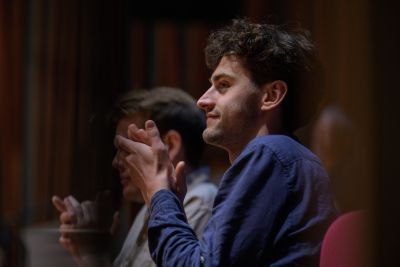
The audience is such an essential part of our work – they truly contribute to the performance. In a way, there’s an unspoken dialogue that happens between performers and listeners, a shared experience that brings the music to life in a unique way each time. I always hope that audiences leave a concert feeling curious, moved, and inspired to return again and again.
Who or what were your early inspirations as a conductor, and how have they influenced your artistic journey?
The greatest inspirations I’ve had as a musician have come from the many artists I’ve been fortunate to study with or work alongside. One particularly formative influence was Roger Vignoles, whom I had the privilege of working with during my time at Indiana University. To this day, I think about the way he spoke about the connection between text and music, and the many roles a pianist, now conductor, can take on in a performance. Among conductors, I’ve drawn inspiration from many – Sir Simon Rattle, Esa-Pekka Salonen, Sir Antonio Pappano, Susanna Mälkki, Marko Letonja, to name just a few. Each of them has offered something unique in their approach to music-making, and their work continues to shape how I think about interpretation, leadership, and collaboration.
What advice would you give to aspiring conductors who are just starting their careers?
I would say the same thing I was once told: start where you are, and use every opportunity to learn. Stay curious and open. At the same time, make space to live life – explore the arts, connect with people, and take time to reflect. Growth as an artist doesn’t happen in isolation; it is shaped by the world around you.
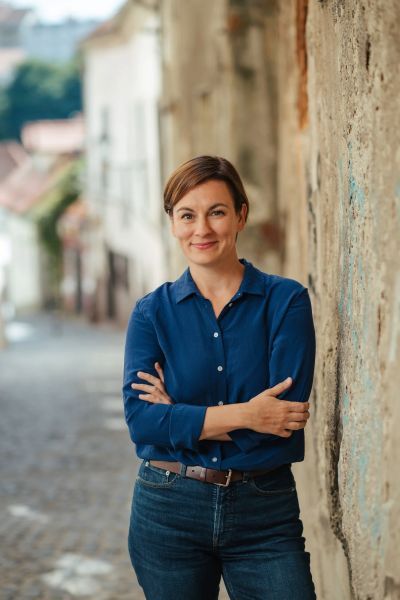
Looking ahead, what projects or performances are on the horizon for you after this concert?
Following our concert, I will be making my debut with the Chicago Symphony Orchestra. This season also brings several other exciting debuts, including with the Canadian Opera Company, the Royal Liverpool Philharmonic, and the London Philharmonic Orchestra. I’m also grateful to be returning to companies I’ve previously collaborated with on both operatic and symphonic projects. It’s a season full of music I love, across both repertoires, and I’m looking forward to everything that lies ahead.
Catch Daniela Candillari conducting the Guildhall Symphony Orchestra & Chorus on Friday 26 September 2025 at Barbican Hall. Find out more and book tickets
